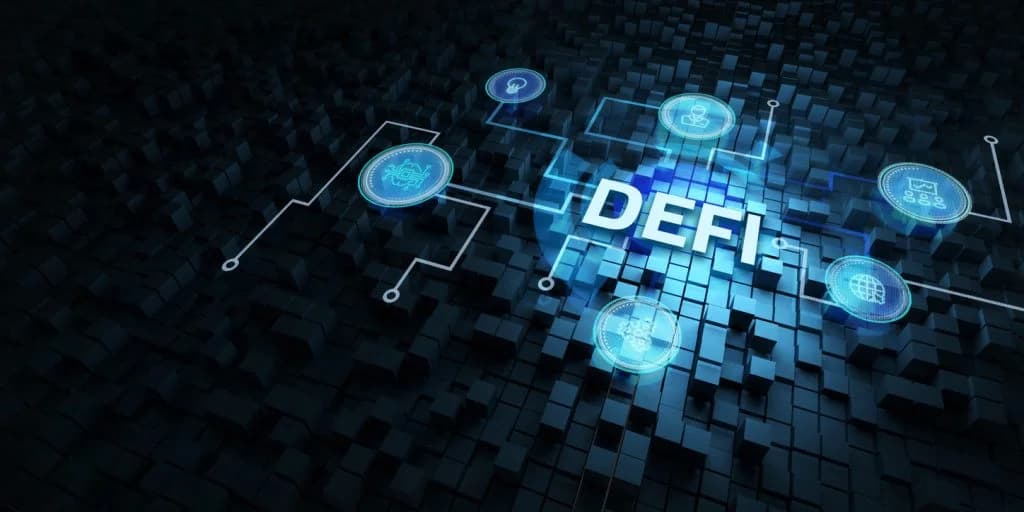Top 6 DeFi Smart Contract Auditing Challenges

Today is, establishing trust the most serious difficulty facing the technology industry. In recent years, as the frequency of data breaches and scandals has increased, the value of the trust has skyrocketed. This is a highly discussed subject within the blockchain community.
It has numerous problems overall. Blockchains can foster trust because they establish an immutable ledger that prevents any entity from altering data without the consent of other network participants.
In this post, we will discuss the difficulties that make auditing Defi smart contract development challenging and provide strategies to overcome these hurdles to enhance the effectiveness and efficiency of your auditing operation.
What Does Defi Smart Contract Auditing Meaning?
Auditing is a critical element of every product’s manufacturing process. It is a way to determine if the facts and activities of an organization are accurate, trustworthy, and honest. Before distributing your smart contract code, you should undertake an audit if you are constructing a decentralized application (DApp).
The auditing performed by Defi guarantees that your smart contract does not contain any potentially dangerous or incorrect codes that could lead to errors or inappropriate behavior. The auditing method resembles Defi safety inspections. You are searching for coding mistakes that could risk the company’s money or data.
Auditing is complex and difficult, particularly when it involves smart contract code. To uncover code security concerns, you must perform a study and inquiry as part of the auditing process. You are responsible for ensuring that the code adheres to all applicable standards and specifications for the project.
Top Six Difficulties in Auditing DeFi Smart Contracts:
1. Determine the audit criteria to be applied.
Understanding the project’s objectives is the first stage in the auditing process. In addition to the code, a DeFi smart contract development audit will examine the project’s business plan and the token economy.
The code will be analyzed with a more technical approach to gain a comprehensive understanding of the business model. In contrast, the business model will be reviewed using analytical tools and interactions with all stakeholders. Consider incorporating a model of play economics into your work.
In this scenario, the auditing strategy will investigate various potential issues, including token distribution, the token flow model, token issuance, token price, and token acquisition.
2. The duration of the test
The duration of the audit will be determined by the complexity and scope of the smart contract’s source code. If the team follows standard coding rules and the project is not very complex, the audit process can be completed in a few days to a week. This is dependent on both conditions being met.
If the project is exceptionally difficult, the completion time could range from three to four weeks. It could take up to eight weeks or even longer in rare situations. The audit duration may also be affected by the need to add new functionality to the smart contract code or make code adjustments to the smart contract code.
In this situation, the audit technique can be extended by a few weeks to account for the additional time necessary for the auditing team to review the new code. This will help ensure that the audit is conducted precisely.
3. Problems with various forms of technology
Auditing the source code of a DeFi smart contract could be a technological obstacle. Because many developers needed to be aware of this circumstance, their auditing expectations may have been unrealistically high. They recognize that auditing a DeFi smart contract development must be addressed.
More than reviewing a few lines of code is required to determine whether something is secure. The auditing process is extremely complicated, requiring a high level of technical skill and exceptional analytical and business acumen.
Auditors, for instance, must comprehend the connections between the smart contract’s numerous components. In addition, they must understand how the actions of certain users can affect not just other stakeholders but the system as a whole.
The audit report documents the audit’s methodology and findings in writing. It describes any potential Defi security audit problems or defects in the code and the corresponding solutions.
4. Insufficient documentation
A project’s documentation is vital. It provides a full understanding of the entire project, from commercial conception through technological implementation. A developer is someone who writes code such that non-coders can readily comprehend it.
In practice, however, not all programmers write their code with the intention of others viewing it. When examining the principle of a DeFi smart contract development, auditors must analyze the developer team’s documentation.
This documentation may include the specifications for the smart contract, the code flow, and in-depth code analysis. Keep in mind that not all project teams document their work thoroughly.
An auditor will be needed to rebuild the structure and flow of the smart contract code if a team fails to document its efforts. A developer may have certain thoughts in mind when developing a certain code, but an auditor may need help understanding these objectives.
5. The Audit Report Presentation
The audit report details the audit’s methodology, results, and conclusions. Remember that every audit report will always be unique. Various additional factors could affect the overall quality of the information.
For instance, the auditing team’s level of expertise, competency, and equipment will influence the quality of the report. Errors and issues with the code should be noted because they are mentioned in the audit report, which is an exhaustive document.
In addition, it will provide ideas for addressing such obstacles or issues. The paper could provide an overview of the company concept and token economy. A required document is the audit report generated by a project team. It permits detecting and correcting any flaws in the smart contract code before deployment.
6. Selecting a Dependable Auditing Firm to Collaborate With
This essay demonstrates that auditing Defi smart contracts is a challenging undertaking. Before selecting an auditing firm, ensure they possess the necessary knowledge and skills to audit your code thoroughly.
It is vital to check that you are getting the most out of an audit because the cost of one could vary greatly depending on the nature of the project.
Examining a company’s previous projects, team composition, and depth of experience are three of the most crucial criteria to analyze when establishing the level of an auditing business. To locate a trustworthy auditing firm as soon as possible, you could ask for referrals from other blockchain companies that have already gone through the auditing process.
Conclusion
Auditing Defi smart contracts is a vital phase in the growing process. It ensures no errors or security vulnerabilities in the code, which could cause the system to fail.
Before making a smart contract product available to the general public, you must undertake a complete code audit if you intend to launch a decentralized application.
Auditing can be difficult, especially when the DeFi smart contract code is involved. This study addresses the top six auditing challenges linked with the DeFi smart contract code.



